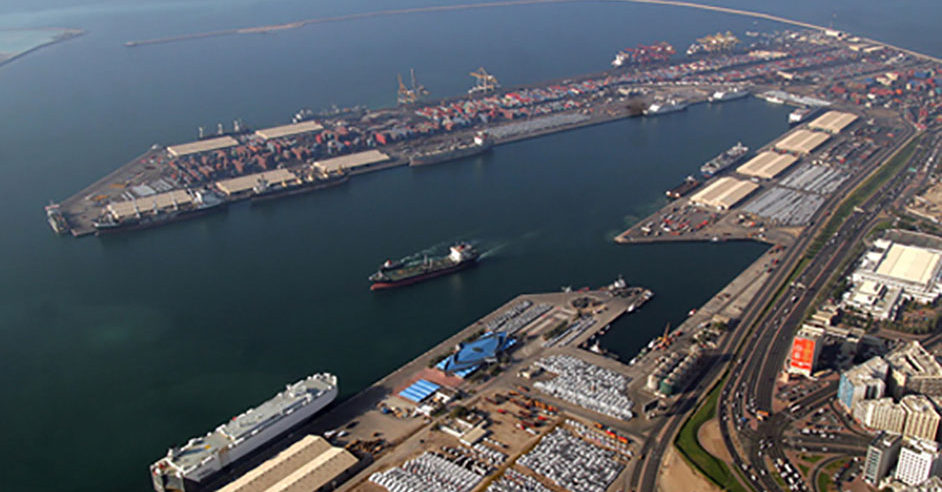You may already have a view as to how effective sanctions are at achieving their stated objectives. However, the truth is short of military intervention, nation states have very few levers to pull to influence another country’s behaviour. If we accept this position, economic sanctions are the only way nation states can demonstrate their opposition to regimes deemed to threaten sovereignty (either directly or to allies), or who operate beyond accepted international norms.
While trade embargoes and physical blockades have been used extensively in maritime history, it is only since the United States withdrawal from the Iranian Nuclear plan in 2018, that we have seen sanctions enforcement agencies increase their focus on the value chain of the international shipping industry. This trend was, of course, accelerated by the Russian invasion of Ukraine.
Entities across the shipping value chain can be exposed to sanctions enforcement, and the cost of non-compliance can be severe.
The UN, US, EU, and UK all have significant sanctions regimes and enforcement agencies that collectively affect how shipping trades are transacted. While the G7+ works hard to synergise on sanctions legislation, there is no straightforward equivalence in regimes, adding significant complexity regarding compliance. The primary countries affected by these sanctions regimes are:
- Cuba · Iran · North Korea · Russia · Syria · Venezuela
Who you are doing business with. This is not only the charterer/owner – depending on your risk assessment, this could include the commodity supplier or shipper, agent, and port authority. The more you know about the value chain of the trade, the better.
The provenance of the cargo. Is the physical trade itself sanctioned or subject to the Price Cap and, if so, the attestation process must be adhered to.
The scope of sanctions regimes. Whether they apply to your company or your trading partners (such as brokers, banks, insurers etc). It is also worth bearing in mind that while the trade may be legal in principle, the reality may be that a trading partner is banned from transacting the business for commercial reasons.
Many of the Clubs within the International Group P&I Clubs (IG) have produced thorough appraisals of sanctions regimes that the shipping industry is exposed to, and these can be easily sourced from their websites.
Sanctions regimes are dynamic. Lists of who or what is sanctioned are constantly updated, and we see updated sanctions packages on a regular basis. It is advised to regularly review the EU, UK and US sanctions lists.
Ensuring due diligence
Robust company due diligence practices are, of course, crucial and strongly advocated by all sanctioning authorities. Unfortunately, no consolidated advice or a ‘one size fits all’ solution exists. OFAC advocates the inclusion of ‘five essential components of compliance’ to include in a sanctions compliance programme (SCP). Please see below an overview of the OFAC advice.
- Management commitment
- Risk assessment
- Internal controls
Internal controls aim to outline clear expectations, define procedures and processes pertaining to OFAC compliance (including reporting and escalation chains), and minimize the risks identified by the organisation’s risk assessments. Policies and procedures should be enforced, weaknesses should be identified (including through root cause analysis of any compliance breaches) and remediated, and internal and/or external audits and assessments of the program should be conducted periodically.”
- Testing and auditing
- Training
The future of sanctions policy and enforcement
The geopolitical instability we are currently experiencing, coupled with the continued investment in sanctions enforcement and the complexity of the legislation, suggests that trade and economic sanctions as a foreign policy tool are here to stay.
In the last three months, we have seen the escalation of vessel-specific designations from the UK, EU and US. On 25 November 2024, the UK undertook its largest package of sanctions against vessels deemed to be involved in the trade of non-compliant Russian oil, as it designated 30 vessels. The EU followed this closely and sanctioned 52 vessels in the so-called “shadow fleet”. Then, in the twilight of the Biden administration, the US designated 183 vessels, estimated to be responsible for approximately 42% of Russia’s seaborne oil exports.
In recent times, we have witnessed a strengthening of resolve within the G7; in July 2024, 43 countries signed the ‘Blenheim Accord’, a commitment to address the growth of the shadow fleet The UK’s Department for Transport has constituted an insurance reporting mechanism designed to expose shadow fleet vessels transiting the English Channel. It has established the Office for Trade Sanctions Implementation (OTSI) to focus on enforcing trade sanctions. Far from treating sanctions as a tool for a short, sharp economic shock, the infrastructure and resources being deployed in sanctions policy and enforcement suggest sanctions are not going anywhere.
The shipping press has debated extensively about what the Trump administration may mean for the future of US sanctions policy.
Opinions have swayed from a complete reversal of sanctions policy to an acceleration in their use. Against this backdrop, looking at the evidence and policy priorities of this Presidency is always useful. The first Trump administration was the architect of a sanctions policy focused on the shipping industry. At this point, there is certainly an expectation of an increasingly aggressive stance against Venezuela and Iran, but While uncertainty regarding how the current administration’s position on Ukraine will manifest itself.
Sanctions, like tariffs, are a mechanism to control trade flows and a country or entity’s ability to engage in the international market. To these ends, the President has been abundantly clear about what the ‘America first’ policy means for global trade.
The shipping industry’s response
Given the significant growth in global shipping’s exposure to foreign and defence policy, it’s now more important than ever for the shipping industry’s representative bodies to develop a robust and honest dialogue with policymakers and enforcement agencies. Proactive and collaborative engagement is crucial to ensure governments have a comprehensive understanding of the industry, an understanding of the commercial consequences of sanctions, and ensure their safe and effective enforcement. While nothing is perfect, the industry’s current dialogue and engagement have helped develop the knowledge of sanctions enforcement and what good looks like regarding compliance.
There is still more that can be done. From a UK perspective, an interface for formal government clarification across relevant departments on new sanctions legislation is needed to ensure accurate business interpretation and support political intent. Developing mechanisms in collaboration with the government to aid stakeholders in understanding and implementing sanctions legislation efficiently will formalise industry engagement and create more effective legislation while supporting the industry’s compliance.
In conclusion, while the complexities are evident, keeping up to date with the latest policy evolution and sanctioning packages is paramount. Ensuring your business has robust and proportionate protocols is crucial to mitigate risk. The Baltic Exchange, as a trusted supplier of industry information, is committed to keeping members and the broader market informed of developments while providing the tools you need to support your company’s compliance processes.
Source: The Baltic Exchange




